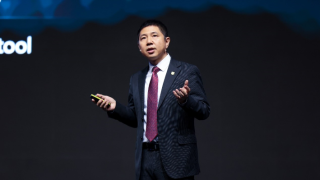With a record number of delegates for a Capacity launch event, the very first Capacity conference to be hosted in China proved an astounding success.
Taking place on 19 and 20 April in Beijing at the glitzy Ritz-Carlton hotel, Capacity China 2011 attracted 290 delegates from the Chinese and international carrier communities, including high-profile executives from both China Unicom and China Telecom.
As well as providing the trademark Capacity Conference blend of valuable networking opportunities and insightful conference sessions, the event also symbolised the growing openness and warmth of the Chinese market towards international carriers.
Day one
During the opening keynote address, China Unicom’s GM of global business, Yan Bo made a wholehearted welcome to the international carrier community. As one of the largest telecommunications providers in the world, Yan Bo also highlighted the scale of China Unicom’s increasingly global operations.
“We are working very closely with companies here such as Telefonica,” said Yan Bo. “We now cooperate with over 400 telecoms operators and service providers in over 200 countries and regions.”
Running with this theme, several other conference sessions throughout the day addressed the ways in which Chinese and international carriers can continue to develop fruitful partnerships. Focussing on the increasing cooperation between Chinese and Asia-Pacific carriers, the pre-lunch executive panel included representatives from Cable & Wireless Worldwide, HGC, PCCW Global and Telekom Malaysia Berhad. “We have seen a lot of requirements coming from China in the last three years, particularly from China Telecom and China Unicom,” said Rozaimy Rahman, EVP, TM global of Telekom Malaysia Berhad. “It’s a question of getting enough capacity to serve the growing domestic and international requirements of Chinese carriers.”
In the afternoon panel session, executives from Deutsche Telekom Asia, Orange, BICS and Sprint discussed some of the international needs now required by Chinese carriers. Alex Tan, CEO of Deutsche Telekom Asia said: “Partnerships will help stabilise the market and it is a form of consolidation.”
Day two
The second day of Capacity China 2011 saw China Telecom take centre stage with Zeng Hongjian, deputy managing director of global business department, delivering the keynote address. Examining his company’s rapidly developing telecoms infrastructure to support its regional and international market reach, Zeng Hongjian said: “We continue to see the Chinese economy growing, and a lot of investment worldwide is coming from Asian countries.”
One of the most popular conference sessions of Capacity China were the final two presentations of the event from content developer Baidu and CDN provider ChinaCache.
As the first company to receive a CDN licence and launch CDN services in China, ChinaCache’s presentation attracted a particularly large and captivated audience. The company’s VP of global business Joe Zhu commented: “From our traffic patterns, we can see that 85% is in consumed within China and roughly 10% to 15% goes to overseas consumers.”
As the conference drew to a close and the delegates thoughts turned to the journey home, the overall response to the first Capacity China event was unanimously positive. “China is an important market for us,” said John Garrett, VP of carrier product strategy and management at Pacnet. “It is a place you can do business.”




